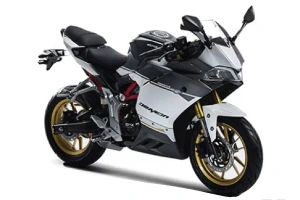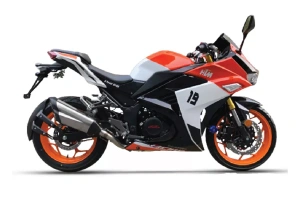Using genuine parts is essential to maintaining your motorcycle and ensuring performance, safety, and durability. Counterfeit parts compromise your bike’s efficiency and increase the risk of accidents. This guide will help you identify Real Bike Parts always to make the right choice.
Why Real Bike Parts Matter
Genuine bike parts are designed specifically for your motorcycle, offering:
- Perfect fit and compatibility.
- Longer lifespan and better performance.
- Warranty coverage and reduced repair costs.
Counterfeit parts may seem like a bargain, but they can lead to frequent breakdowns, unsafe rides, and higher long-term expenses.
Key Tips to Identify Real Bike Parts
1. Buy from Authorized Dealers
Purchase from authorized dealerships or service centres to ensure genuine products. Authorized sellers also provide after-sales support and warranties, which fake part sellers can’t guarantee.
2. Check the Packaging
Inspect the packaging for:
- Manufacturer’s logo and branding.
- Properly sealed boxes with no tampering.
- Clear labelling and barcodes.
Counterfeit parts often have faded printing, spelling errors, or generic packaging.
3. Verify Part Numbers
Look for a unique part number printed on the item or its box. Cross-check it with the official catalog from the manufacturer to confirm its authenticity.
4. Assess the Material Quality
Genuine parts feature high-quality materials, perfect finishes, and precise weights. Fake parts often feel lighter, have rough edges, or display inconsistent quality.
5. Be Wary of Unusually Low Prices
If a deal seems too good to be true, it probably is. Genuine bike parts typically have consistent pricing across authorized outlets.
6. Look for Holograms or QR Codes
Many manufacturers include holograms, QR codes, or unique serial numbers. These can be scanned or verified online to confirm their authenticity.
7. Ensure Warranty Coverage
Authentic parts often come with a warranty. Ask for the warranty card or receipt when purchasing, as counterfeit parts rarely offer this.
8. Test the Fit and Compatibility
Genuine parts fit seamlessly without requiring modifications. If an item doesn’t align properly, it’s likely not genuine.
9. Research the Seller
Check the seller’s reputation. Read reviews, verify their certifications, and ensure they are a trusted source for genuine parts.
10. Contact the Manufacturer
Contact the manufacturer directly or use their online tools for part verification if unsure. Most companies provide resources to identify authentic products.
Red Flags to Avoid Fake Parts
- Poorly printed logos or mismatched branding.
- Unsealed or damaged packaging.
- Sellers offering steep discounts or claiming to be “genuine resellers.”
- Lack of warranty or incomplete documentation.
How to Maintain Real Bike Parts
Once you’ve identified and installed authentic parts, regular maintenance is key to maximizing their lifespan:
- Clean and lubricate parts as recommended by the manufacturer.
- Follow the service schedule for your bike.
- Avoid overloading your motorcycle to prevent premature wear and tear.
Frequently Asked Questions
1. How can you Identify Real Bike Parts?
Look for holograms, QR codes, and unique serial numbers on the packaging. Cross-check part numbers with the manufacturer’s catalogue.
2. Why are genuine bike parts expensive?
Authentic parts are made with high-quality materials, rigorous testing, and precise engineering to ensure durability and safety.
3. Can counterfeit parts harm my bike?
Yes, fake parts can cause damage, reduce performance, and lead to frequent breakdowns or safety issues.
4. Do genuine bike parts come with a warranty?
Yes, genuine parts usually include a warranty from the manufacturer.
5. Where can I buy genuine bike parts?
Authorized dealerships, service centres, or the manufacturer’s website are the best sources.









